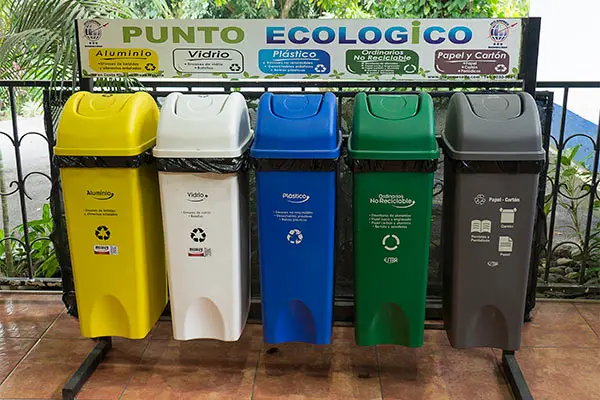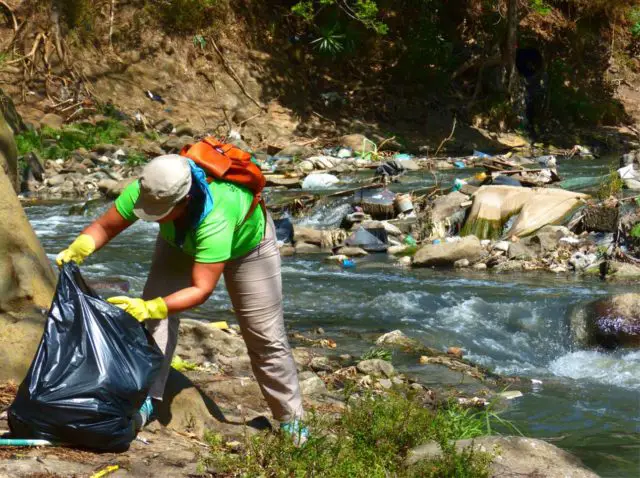In 2017, according to the Ministry of Health, our country recycled 100,200 tons of waste. That figure is 469% higher than recycled waste in 2015. To have a clearer idea of this, the amount of waste recycled in 2017 It is equivalent to the weight of 64,645 Toyota ‘Yaris’ cars, approximately.
The growth in the collection of valuable waste is due, according to specialists, to a process of education of the population about the importance of reducing and separating waste, to the efforts of municipalities to collect them and private initiatives that promote this environmentally friendly practice.

In 2015, Costa Rica recorded 17,200 tons of recycling; in 2016, the record was 40,000 tons. However, 2018 data is not yet available.
“The municipalities have achieved an important advance in the integrative management of waste; each municipality has adopted different models according to its territory and its economic possibilities, but most have managed to offer solutions to citizens, favoring the recovery of waste”, said Eida Arce, environmental manager of the National Union of Local Governments (UNGL).
According to the Ministry of Health, Costa Ricans sent 1,043,000 tons of garbage to landfills and landfills in 2017, which means that the country recycled, in that year, only 9.6% of its waste.
“In my opinion, there has been no growth that should be. For example, in Desamparados, only 2 out of 10 houses recycle correctly. If we see the historical behavior, we have gone from 1 to 2 houses, which is really very little”, commented Evelyn Hernández, Coordinator of Environmental Sanitation of the Municipality of Desamparados.
However, Hernández rescues the work of the municipalities to recover waste. In Desamparados, the neighbors have been receiving recyclable waste collection since 2008. However, the collection trucks passed only once a month. Last year, the offer was extended to once a week.
Yearly, the homeless recycle 1,550 tons, which is equivalent to 2.8% of the total annual waste in that canton. In addition, the Municipality recovers 6,000 tons of garbage from the riverbeds every year.

Something similar happens in Curridabat. In recent years, they have activated several initiatives to promote recycling and reduce the amount of waste. Every week, families can take recyclable material to the streets. This task prevents 200 tons of waste annually from stopping in a landfill. Per day, that canton produces 70 tons of garbage.
“One of the reasons for the increase in the amount of recyclable material is the awareness of the population (…) Although the municipality of its canton does not offer waste management options, people are looking for alternatives to recycle”, explained Sofía Pérez, coordinator of the Department of Environment and Health of the Municipality of Curridabat.
Among the private options to reduce the volume of garbage produced each month, ‘Ecoins’ must be mentioned. This project promotes that people take their valuable, clean, dry, and separated materials to one of the 287 collection centers and in turn deliver ‘virtual money’ that can be exchanged for discounts on products and services from dozens of participating stores. In 18 months, the organization attracted 1,600 tons of recyclable waste from 51,000 users.
Ecoins started operations in April 2018 and the success has been so great that they already exported the idea to Panama and Peru. In November, work will begin in Guatemala and El Salvador. In addition, next year they plan to offer the service in Honduras, Mexico, Chile, Colombia, and Jamaica.
Lucila Espinoza, administrative director of Ecoins, said that the education of the population is ‘key’ to attract more people to the programs of integrative waste management. “We have realized, through social networks, that people still have doubts about which materials are recycled, which are not, how to start, what to do. There is a lot of misinformation”, Espinoza pointed out.
The challenge
The UNGL believes that municipalities must now consider how they will make the model of sustainable recycling, because, for some, it is expensive to collect due to the extent of land they must cover.
In addition, they have the challenge of convincing those who do not yet recycle to integrate them into different programs. Also, according to this organization, they should redouble their efforts to educate citizens about responsible consumption.


What are they doing with the recycling or how are they disposing of it??? Where does it go??